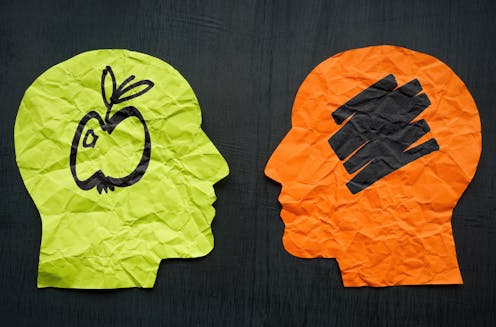What is mental imagery? Brain researchers explain the pictures in your mind and why they’re useful
- Written by Lynne Gauthier, Associate Professor of Physical Therapy and Kinesiology, UMass Lowell
 Some people can visualize things perfectly in their mind's eye, while others can't.designer491/iStock via Getty Images Plus
Some people can visualize things perfectly in their mind's eye, while others can't.designer491/iStock via Getty Images Plus
Curious Kids is a series for children of all ages. If you have a question you’d like an expert to answer, send it to curiouskidsus@theconversation.com.
Why are some people able to visualize scenarios in their minds, with...

